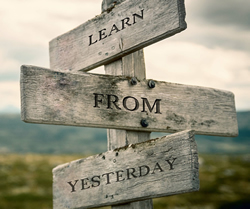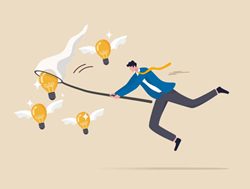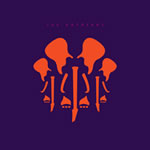Michelle Gibbings* says it’s easy to dismiss yesterday’s ideas as out-of-date and irrelevant, but like fashions, they have a habit of coming back.
 In high school, one of my favourite subjects was history; so much so I thought about becoming a history teacher.
In high school, one of my favourite subjects was history; so much so I thought about becoming a history teacher.
Not surprising then that one of my favourite quotes is from the Danish philosopher, Søren Kierkegaard: “Life can only be understood backwards, but it must be lived forwards.”
Yet, we can be overly future-focused.
We imagine the future and spend time planning what comes next, rather than enjoying the present.
We can focus our attention on recent ideas and writing while ignoring concepts from the past, deeming them irrelevant and old fashioned.
However, if you are a watcher of fashion cycles (be it clothing, music or other trends) you’ll know that everything old eventually comes back.
Old concepts are recycled and presented as new or ‘rediscovered’.
Old ideas are tweaked and reshaped somehow, yet the core of the concept is untouched.
I was reminded of this as I returned to read some of Charles Handy’s work.
A prolific writer, his latest book was released only two years ago, at the age of 87.
His previous books, The Elephant and the Flea and The Empty Raincoat: Making Sense of the Future, were published in 2010 and 2011 respectively.
In the Elephant and the Flea, Handy predicted that the age of giant corporations was over (not something that has happened yet).
He believed that the age of the entrepreneur was here (and yes, there’s much truth in that part).
He encouraged us to change the way we think about our portfolio (and by that, he means our portfolio of work and how we approach our career).
In his book, the elephants were the giants, and the fleas were small or independent operators.
Handy saw the fleas as the innovators, the source of new ideas.
The elephants needed them for these things, and so a symbiotic relationship existed.
The Empty Raincoat challenged us to think about our careers and organisations.
What’s fascinating is how many of the concepts he shared are still being talked about as ‘new’ ideas today.
It’s a great reminder that change happens, but often much more slowly than we imagine.
It’s also a reminder to always check and reflect on what’s come before.
There is much we can learn from the past.
In looking to the past, we gain insights into ourselves and better understand who we are as a species.
You can examine good (and not so good) decision-making and understand the context and outcomes of the decisions.
You can uncover the root of concepts and ideas that were once on the fringe and are now in the mainstream.
At the same time, spending too much time ruminating about past decisions isn’t healthy, and a fixation with the past can mean you miss current and future opportunities.
Status quo bias, a negative frame of reference, and other cognitive biases such as anchoring and confirmation bias, can hold you back from progressing.
As I’ve written before, it’s about balancing the past, present and future.
So how do you get the balance right when learning from the past? There’s a helpful process to adopt.
Identify what you need to know
Ask yourself what ideas you need to dig into or learn more about
What concept do you need to understand more fully? What’s missing from your knowledge bank? Why does this matter?
Search and seek sources
Go broad and deep and be deliberate about the sources you are using.
Are they credible and reliable? What’s the angle they are taking?
Everyone holds assumptions and an ideology and so know the writer’s perspective so you can balance their ideas with those of others.
Be careful about only listening to or reading ideas you agree with.
Be curious and seek out ideas you disagree with and ask yourself ‘why?’
What element do you disagree with? Why does that perspective annoy or frustrate you? What does it say about you and your assumptions?
Study the data and identify the insights
Determine what’s relevant and valuable.
See how the new ideas connect with what else you know.
Do they challenge existing assumptions or reinforce existing knowledge?
Remember, there is already much you know, and it’s hard for your brain to hold everything.
Sometimes you need to dig into your past knowledge bank before you move forward.
Challenge the meaning you are putting on those insights
So you can critically assess what action you take with your newly acquired insight and wisdom.
What will you continue, stop or start doing?
Determine what you take forward and what you leave behind
It can be easy to hoard ideas and stick with concepts that hold you back, so be clear on what you need to leave behind.
Even when you do all that, there will still be more to know.
As philosopher, Ludwig Wittgenstein said: “Even when all the possible scientific questions have been answered, the problems of life remain completely untouched.”
So, where are you focusing your learning this year?
*Michelle Gibbings is a Melbourne-based change leadership and career expert and founder of Change Meridian. She can be contacted at [email protected].
This article first appeared atwww.changemeridian.com.au.











